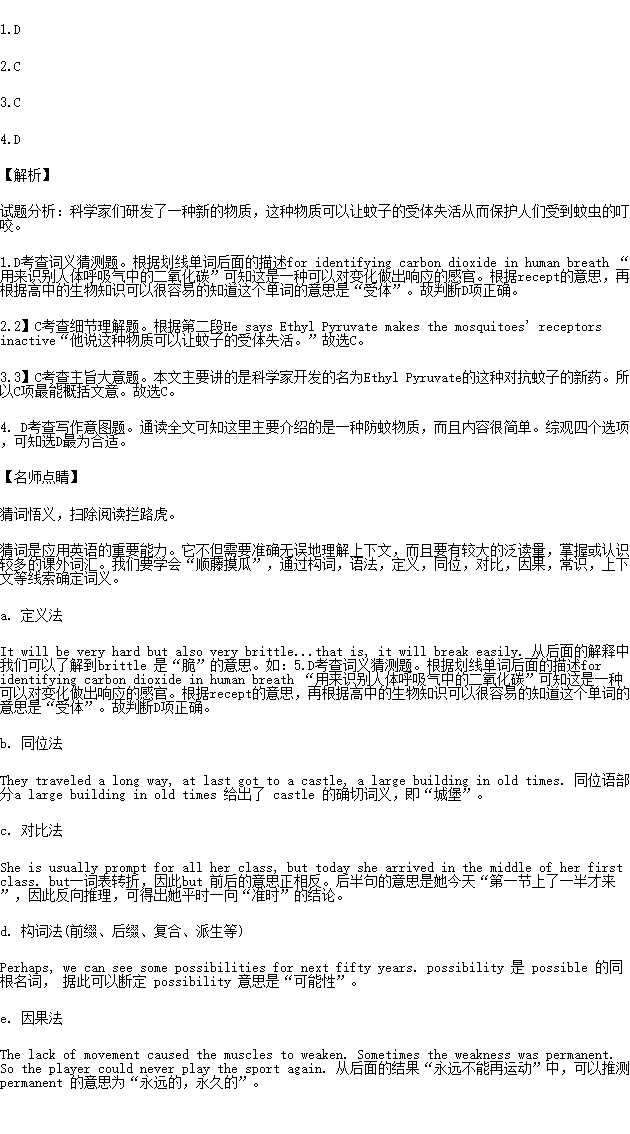题目内容
The sound of a mosquito can mean trouble in many parts of the world. The bite of the mosquito can be deadly. The insects carry serious diseases like malaria (疟疾). It is estimated that almost 630,000 people died from malaria and malariarelated causes in 2012, and most of these cases were in African countries.
In the United States, a group of California scientists are working to develop a more effective and less costly substance (物质) to protect people from mosquitoes. The researchers are investigating the sense of smell in mosquitoes. They found the insects use the same receptor for identifying carbon dioxide in human breath as they do for the smell of our skin. Anandasankar Ray, who is leading the investigation, says scientists tested more than a million chemical compounds (化合物) until they found a substance called Ethyl Pyruvate. He says Ethyl Pyruvate makes the mosquitoes' receptors inactive. “When we apply Ethyl Pyruvate to a human arm and offer it to hungry mosquitoes in a cage, very few of the mosquitoes are attracted to the human arm because only a few of them are able to smell it out,” said Ray.
Genevieve Tauxe, a member of the research team, says it was not easy to find the neurons (神经元) of noble cells that recognize both the smell of human breath and skin. “With the device used to examine the mosquito, we are able to insert a very small electrode (电极) into the part of the mosquito's nose, where its smelling neurons are and where the smell is happening,” said Tauxe.
Anandasankar Ray says a product based on Ethyl Pyruvate may cost less to produce than DEFT, the most effective chemical treatment now in use. He says DEFT is too costly for most people who live in areas affected by malaria.
“Perhaps by finding smells that can attack other target receptors, we will be able to improve upon DEFT and finally have the next generation of insect behaviour control products,” said Ray.
1.The underlined word in the second paragraph probably means ________.
A. a substance that protects people from mosquitoes
B. a piece of equipment that sends signals
C. a device that reacts to light
D. a sense organ that reacts to changes
2.According to the passage, Ethyl Pyruvate can ________.
A. kill the mosquitoes' smelling neurons
B. cause the mosquitoes to lose their senses of smell
C. result in the inactiveness of the mosquitoes' receptors
D. make the mosquitoes uninterested in human breath and skin smell
3.Which of the following would be the best title for the passage?
A. Ethyl Pyruvate—an Insect Behaviour Control Product
B. Malaria—a Serious Disease Causing 630,000 Deaths
C. Scientists Find a New Substance to Fight Mosquitoes
D. A New Generation of DEET Has Been Developed to Kill Mosquitoes
4.This passage most probably appears in ________.
A. a textbook of medical schools
B. a collection of doctors' essays
C. the column of newspaper ads
D. the health column of a magazine
 课堂全解字词句段篇章系列答案
课堂全解字词句段篇章系列答案 步步高口算题卡系列答案
步步高口算题卡系列答案
